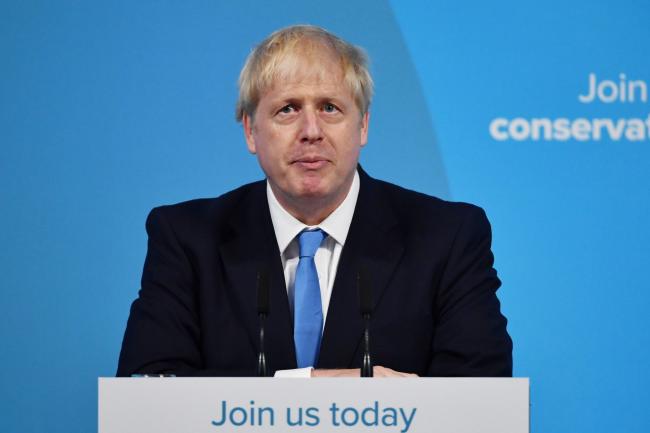(Bloomberg Opinion) -- And that’s that. With 92,153 votes from Conservative Party members, Boris Johnson — the mononymous former mayor, foreign secretary and Brexit impresario — has become the new Tory leader and hence the U.K.’s prime minister.
It will no doubt be an eventful ride. As Johnson takes office, his party is fracturing and his majority is shrinking. A crisis is simmering in the Strait of Hormuz, where Iran has seized a British tanker. Public services are flagging, the economy is stalling, and the pound is sliding. In just 99 days, the country is set to depart the European Union — potentially precipitating its biggest crisis since the war.
Is Johnson the man for these challenges?
His public record gives reason for pause. As mayor of London, he revealed an aptitude for showmanship but not one for prudence. His stint as foreign secretary was punctuated by reckless speech and mortifying gaffes. Even his allies in government concede that he’s often heedless, unreliable, detail-averse, and unmindful of the truth — hardly a promising combination for the intricate negotiations that lie ahead.
Much of Johnson’s stated agenda, meanwhile, manages to be both vague and irresponsible. A centerpiece of his campaign was a package of regressive and unnecessary tax cuts that could cost nearly $25 billion a year. These were paired with extravagant commitments to boost spending on schools, social care, police, broadband expansion, “great projects” and more. Where the money will come from is anyone’s guess.
Inevitably, though, it is Brexit that will define Johnson’s term in office. And here his plans are alarming. He hopes to convince the EU (against its will) to completely renegotiate the deal the two sides have hashed out, yet he hasn’t specified what he thinks should take its place. He proposes to replace the deal’s “backstop” — intended to avoid a hard border with Ireland — with technological arrangements that few experts think are feasible. And he has vowed to withhold Britain’s $48 billion divorce settlement unless the EU meets his terms.
If this strategy fails, as seems likely, Johnson has vowed to leave on Oct. 31 without a deal, “do or die.” This is in all probability a bluff: Such a chaotic exit would grievously wound Britain’s economy, clobber its public finances, split Johnson’s own party and likely lead to electoral disaster. Cabinet ministers have been preemptively quitting in protest.
If he is indeed bluffing, though, Johnson has played a weak hand badly. By asserting that the odds of a no-deal exit were “a million to one,” he has discouraged businesses from making the kinds of preparations — such as stockpiling inputs or revamping supply chains — that would convince the EU to take the threat seriously. By proposing to divert funds from the government’s no-deal reserve to pay for his tax cuts, he has implied that he himself doesn’t take the possibility all that seriously.
There is not much that he does seem to take seriously, in fact, which is perhaps the most worrisome thing about the months to come. Nearly any decision Johnson makes on Brexit is likely to have momentous consequences — for his party, for the economy, even for the union itself. If he senses the gravity of the moment, he’s given few signs of it.
—Editors: Timothy Lavin, Clive Crook.
To contact the senior editor responsible for Bloomberg Opinion’s editorials: David Shipley at davidshipley@bloomberg.net, .
Editorials are written by the Bloomberg Opinion editorial board.
©2019 Bloomberg L.P.
